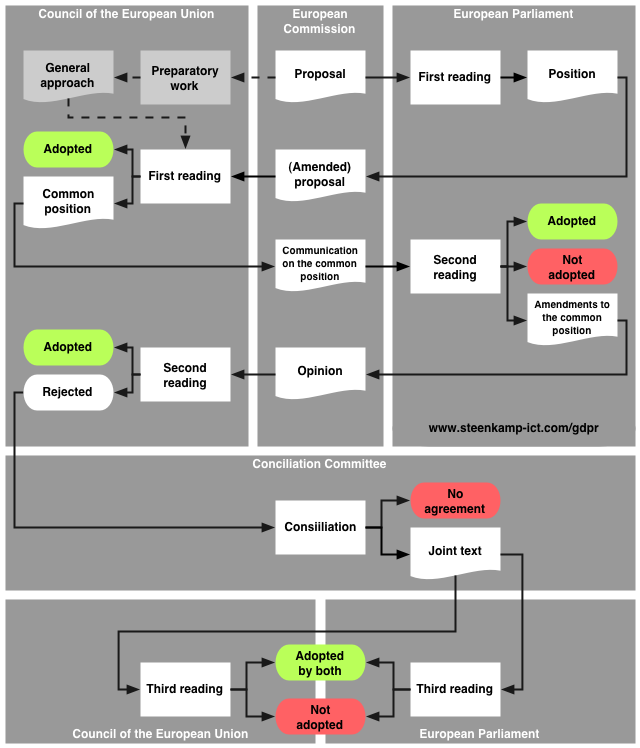Ordinary legislative procedure
To quote the text somewhat more in full: "The European Parliament and the Council of the European Union, [...] Acting in accordance with the ordinary legislative procedure,[...] Have adopted this Regulation [...]" This tells us two important things: the first is that the European Parliament and the Council of the European Union have to agree to adopt the Regulation, and the second is that in order to achieve this they follow something called the 'ordinary legislative procedure'. An overview of this procedure is shown below:

The general idea is that the European Commission drafts a proposal and Parliament and the Council take turns amending it and voting on it, with Parliament going first. The first two rounds of voting ('readings') can have the following outcomes:
- the proposal is adopted;
- the proposal is not adopted;
- after two rounds of voting the proposal still seems viable, but Parliament and the Council disagree on the text
In this latter case the 'conciliation' phase sets in: a committee with representatives from the European Commission, the Council of Europe and the European Parliament comes up with a compromise text, which is voted on by Parliament and by the Council. The compromise text is adopted when both Parliament and the Council vote in favour.
General approach
Pending the first-reading position of the European Parliament, the Council formulates a political agreement or 'general approach'.
Trilogue or triologue
In parallel to the formal procedure that is summarised above there's the trilogue or triologue, an informal gathering of the European Commission, the Council and Parliament in which negotiations may take place prior to the various steps in the formal procedure.
[Source: Ordinary legislative procedure]
